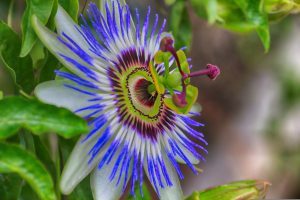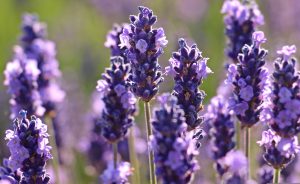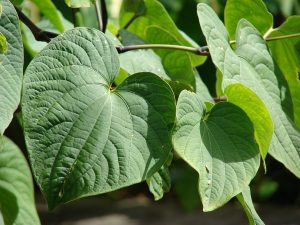HEALTH TOPICS
The Importance of Rest
Posted by: Jacob Byrne BHSc Adv.Dip Nut Med
The importance of rest cannot be overstated. Adequate rest is essential for our physical and mental health, and it can help to improve our mood, memory, and overall well-being.
If you’re struggling to get enough rest, here are 10 steps you can take to improve your sleep hygiene and get better rest:
- Stick to a consistent sleep schedule: Try to go to bed and wake up at the same time every day, even on weekends.
- Create a relaxing bedtime routine: Spend the last hour before bed winding down with activities like reading or listening to soothing music.
- Avoid screens before bed: The blue light emitted by screens can interfere with your body’s production of melatonin, a hormone that helps regulate sleep.
- Keep your bedroom cool, dark, and quiet: A cool, dark, and quiet bedroom is more conducive to sleep.
- Use comfortable bedding: Invest in a comfortable mattress, pillows, and blankets to create a cozy sleep environment.
- Exercise regularly: Regular physical activity can improve sleep quality, but try to avoid vigorous exercise close to bedtime.
- Avoid caffeine and alcohol before bed: These substances can disrupt your sleep patterns and make it harder to fall and stay asleep.
- Eat a healthy diet: A balanced diet that includes plenty of fruits, vegetables, and whole grains can support better sleep.
- Avoid napping during the day: Napping can interfere with your ability to fall asleep at night.
- Practice relaxation techniques: Techniques like meditation, deep breathing, and progressive muscle relaxation can help you relax and fall asleep more easily.
By implementing these strategies, you can improve your sleep hygiene and get the rest you need to feel your best.
How to improve your Rest
There are some super nutrients and herbs which are great for improving sleep quality and duration. These include passionflower, Kava, Glycine, Magnesium Glycinate and Lavender. Always consult your healthcare provider to see what options are best for you.
Passionflower

Passionflower is a herbal extract derived from the flower of the passionfruit vine (Passiflora incarnata). Passionflower possesses ‘hypnotic’ and ‘sedative’ qualities which make it the perfect choice for promoting the initiation of sleep. Passionflower has a high safety profile and is safe for both children and adults at the recommended dose. Passionflower is a powerful nervous system herb that can also be used to reduce the fight or flight response during the day, further improving sleep quality at night and reducing stress levels. Passionflowers’ gentle but powerful actions and high safety profile, this herb one of my favourite go-to herbs for sleep, stress, anxiety and everything in between. Passionflower can be taken in herbal liquid, tablet and tea formulations.
Kava is a herb traditionally used in the islands of Fiji and is still used to this day for its sedative and anti-anxiety effects. Kava is a herbal extract made from the roots of the Kava plant (Piper methysticum). Kava is most useful when sleep is being disturbed by waking throughout the night, or an inability to have a solid sleep. Kava has sedative and analgesic properties that promote the continuation of sleep without waking tired or groggy the next day. Kava must be taken away from alcohol as this herb is metabolised in the liver and alcohol and kava may put an extra burden on the liver. Kava can be taken as a liquid extract or as a tablet formulation.
Glycine

Glycine is an amino acid compound that is useful in reducing body temperature by increasing peripheral blood flow. This helps the body remain cool and regulate its body temperature ensuring a peaceful slumber. This amino acid compound has a sweet taste and its appearance is similar to that of white sugar. Glycine is readily dissolved in liquids and can be a great addition to your before-bed passionflower tea. Speak to us to find a dosage that works for you.
Magnesium Glycinate
Magnesium Glycinate is an absorbable form of magnesium that is bound to the amino acid glycine. This helps the absorption of the heavy mineral through the lining of the gut improving absorbability. This form of magnesium is greatly taken at night as it helps to both relax the muscles and also has the added benefits of the amino acid glycine as discussed above. This supplement is best taken 45min before retiring to bed and at least 30mins away from food or other supplements. If possible, powdered forms are more favourable to tablet forms as they are more readily absorbed.
Lavender

is a beautiful herb for sleep support and the nervous system. Lavender compounds are derived from the flowers of Lavandula angustifolia. Lavender has been used traditionally to support conditions surrounding sleep, anxiety, restlessness and digestive dysfunction. Lavender possesses sedative and anti-anxiety properties as well as an ability to reduce spasms which make it the perfect sleep companion. Lavender can be used in a multitude of ways and is safe for all ages. Lavender can be used as an essential oil before bed to create a relaxing environment and also as a tablet or liquid herb preparation.
If you are needing some support getting back to your best night’s sleep, come book a free 15min consult with one of our amazing naturopaths.
Subscribe to Gr8Health
Sign up to get 5% off your first order, exclusive access to our special offers, new arrivals and more.

